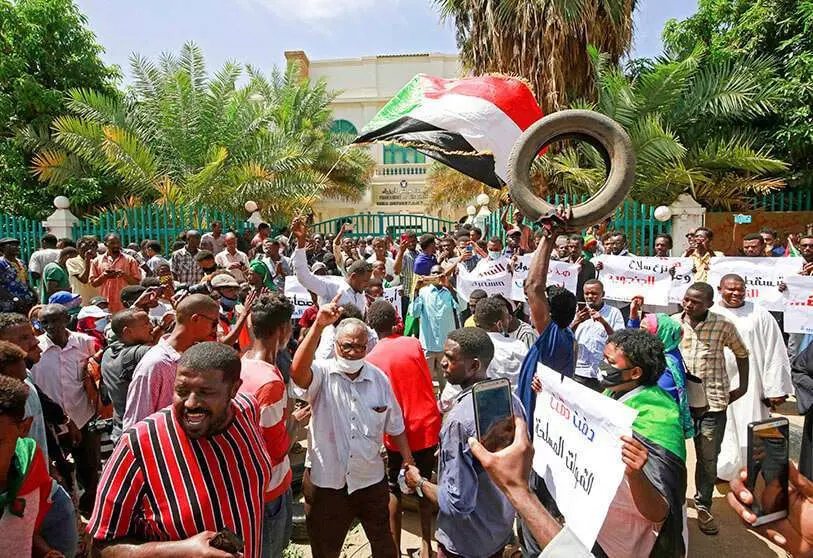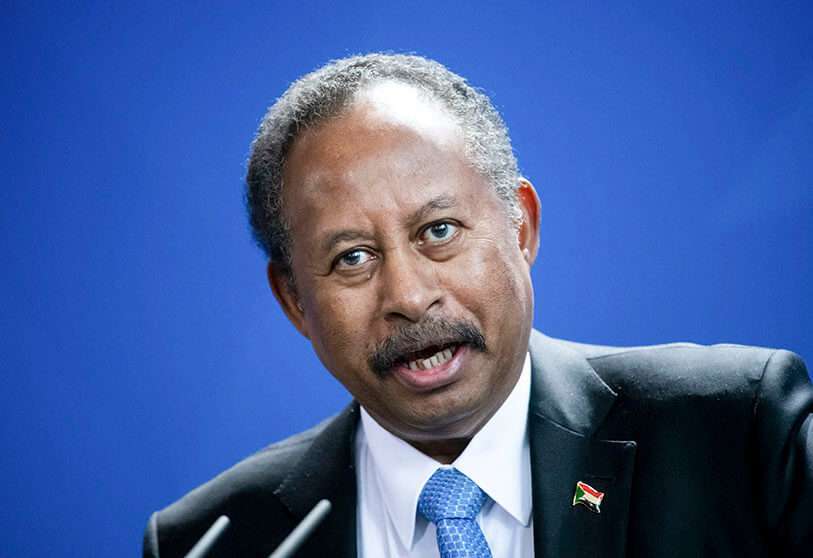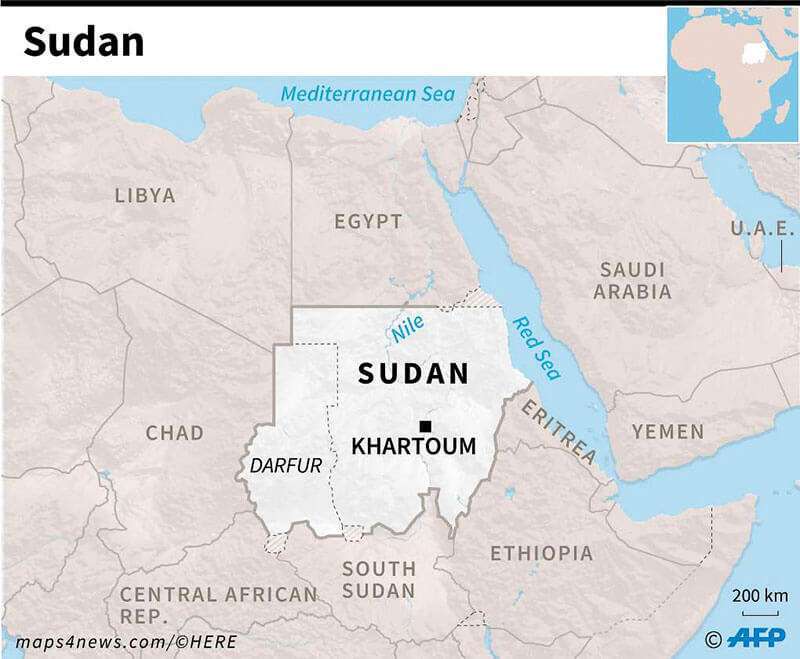Demonstration in Khartoum over precarious economic situation

A crowd of Sudanese took to the streets of the country's capital, Khartoum, to protest against the economic difficulties faced by this country of 40 million people suffocated by the high cost of living.
"You can't find a loaf of bread at school for breakfast," complained high school student Hani Mohamed, who took part in the protest wearing his school uniform, to an AFP correspondent.
Since the coup that toppled dictator Omar al-Bashir in April 2019 after months of demonstrations, Sudan's economy has plunged into a severe crisis, inherited from the old regime and threatening social peace and the fragile process of democratic transition, piloted by a civilian-military junta.
Several main roads in the east of the capital and in Ummdurman, a town east of the Nile, were blocked by protesters using stones, tree trunks, old car wrecks and burning tyres, AFP reported. Police used tear gas to disperse the demonstrators, the news agency's correspondent said.
The economic situation is dramatic, debt has soared to 49.3 billion euros and inflation reached 269 percent in December last year. The COVID-19 pandemic has only made things worse.
Shortages are the norm, no matter what type of commodity, and rationing is the daily routine for the Sudanese, who have to queue for hours in front of petrol stations, bakeries and pharmacies for basic necessities. Power cuts are also frequent.
The transitional government last week approved the country's first budget since its removal from the US blacklist of terrorist-supporting countries it had been on since 1993, and hopes it will lead to an improvement in the economic situation. Former US Secretary of State Mike Pompeo signed the rescission on 14 December. The blacklisting prevented foreign countries and international institutions from trading and investing in Sudan on pain of sanctions.

Bashir's regime was accused of providing support to figures such as Al Qaeda founder Osama bin Laden, who resided in Sudan for five years. The US judiciary has for years considered Sudan complicit in the terrorist organisation's attacks on the US embassies in Kenya and Tanzania (1998), and the bombing of the destroyer USS Cole in the waters of the Gulf of Aden in 2000.
When the Trump administration promised the new authorities in Khartoum that the country would be removed from the blacklist, they pledged to pay $335 million in compensation to the families of victims of terrorism.
This announcement was followed by the normalisation of relations between Sudan and Israel, something the US had been pressing Khartoum for months, and which was linked to the country's removal from the blacklist.
On access to international finance and investment, in early January Khartoum signed a memorandum of understanding with Washington on debt repayment with the World Bank, currently chaired by US President David Malpass.









